LG Innotek D660V Telematics Module User Manual LTD VH1000 User Manual 120611
LG Innotek Co., Ltd. Telematics Module LTD VH1000 User Manual 120611
User Manual
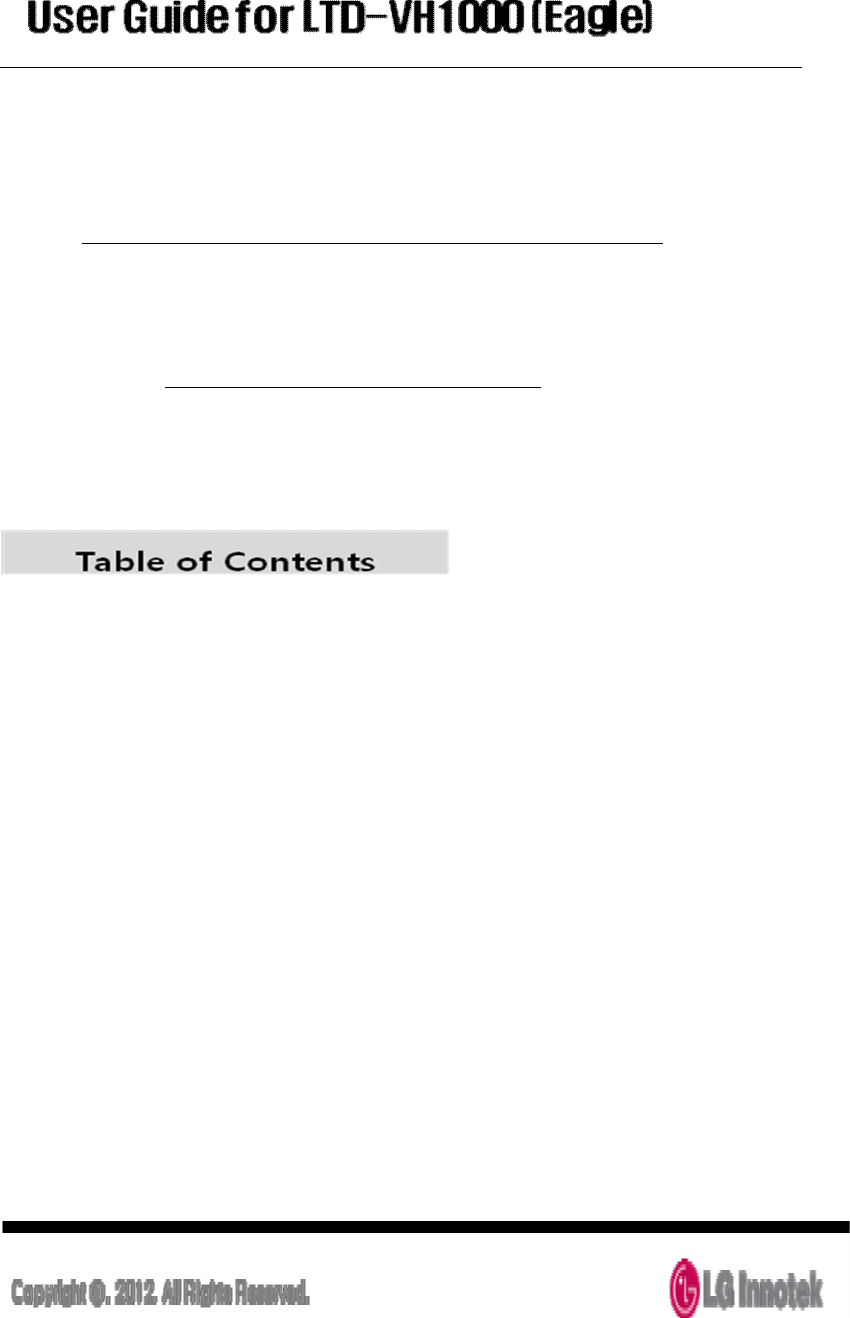
PRODUCT : CDMA/EVDO WIRELESS MODEM
MODEL NAME : LTD-VH1000
1. Overview
2. Major Features
3. Interface
4. Electrical Specifications
5. RF Specifications
6. Mechanical Specification
7. General Specification
8. Parts Map
9. Connector
10. Antenna Specification
11, RFx information
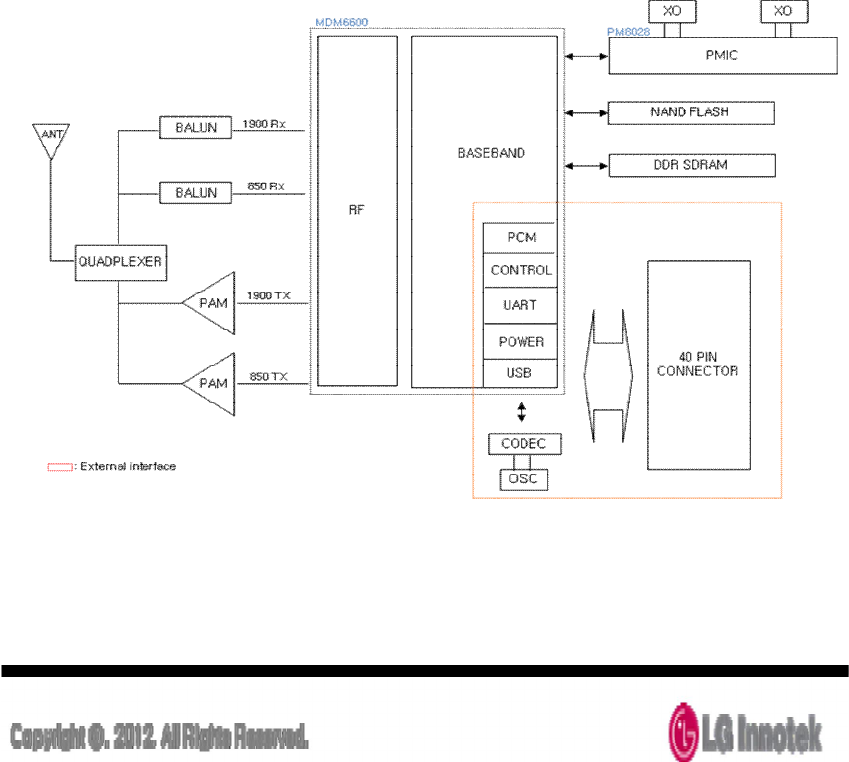
1. Overview
The LTD-VH1000 is achieved as personal mobile communication devices of the
compact radio equipment, the latest design of the parts becoming smaller, lighter
weight having the 850/1900MHz bands. It is the vehicle’s telematics system that
connect with CDMA(EVDO) wireless network and the wireless module with voice
and data communication. It can be operated at land, rivers, and other similar
areas. On EVDO operating mode, It can be communicated with uplink 1.8Mbps,
downlink up to 3.1Mbps data transfer speed such as a movie or a video call. It
may be able to receive large amounts of data.
Standard RS-232 port and USB port communicating with the host system via AT-
command or control commands can be used to send data. Voice calls are
possible
1.1. Product description
The LTD-VH1000 module described in this manual is supported CDMA 1x
(EVDO rev.A) connectivity to HYUNDAI TCU(Telecommunication control unit)
This module is manufactured by LG INNOTEK and installed by HYUNDAI
1.2. Block diagram
Figure 1 Block Diagram
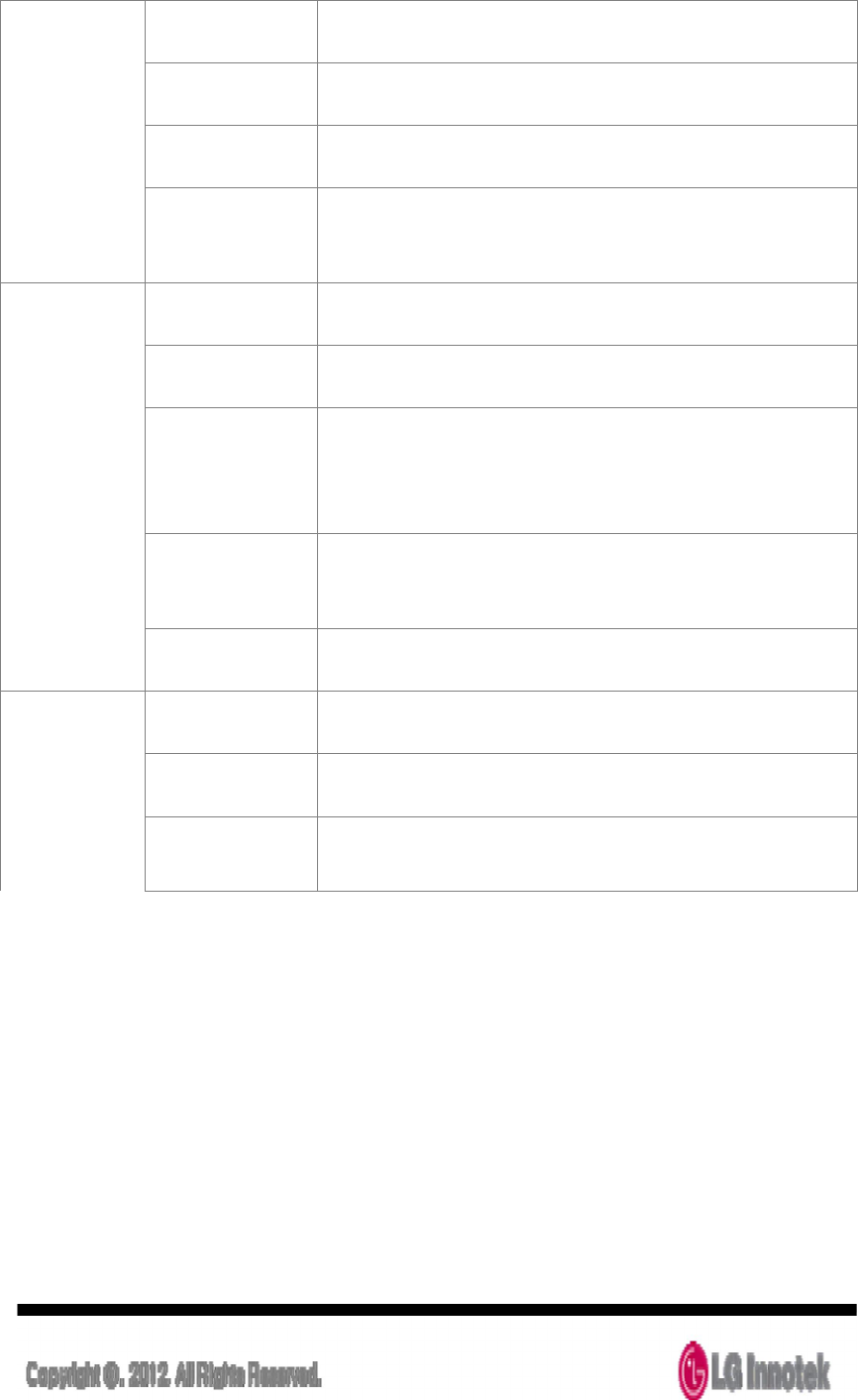
2. Major Features
Mechanical
Dimension 38.4 (W) x 92 (L) x 7.6 (T) mm
Interface USB, UART, General Purpose I/O pins
Antenna FAKRA Connector
Temperature *
Operation : -20℃ ~ +70 ℃
Storage : -40 ℃ ~ +85 ℃
CDMA
Main Chipset MDM 6600
Memory 512Mb(NAND) / 256Mb(SDRAM)
Standard
3GPP2 CDMA 1X, EVDO Rev.A
- DL Speed : 3.1 Mbps
- UL Speed : 1.8 Mbps
Band
CDMA 850(DCN), 1900 (PCS)
GPS(Not supported)
Power Max. 24dBm (Power Class 3)
Etc.
OS Android 2.3
DC Power 3.8V
Functions Voice, Data, SMS
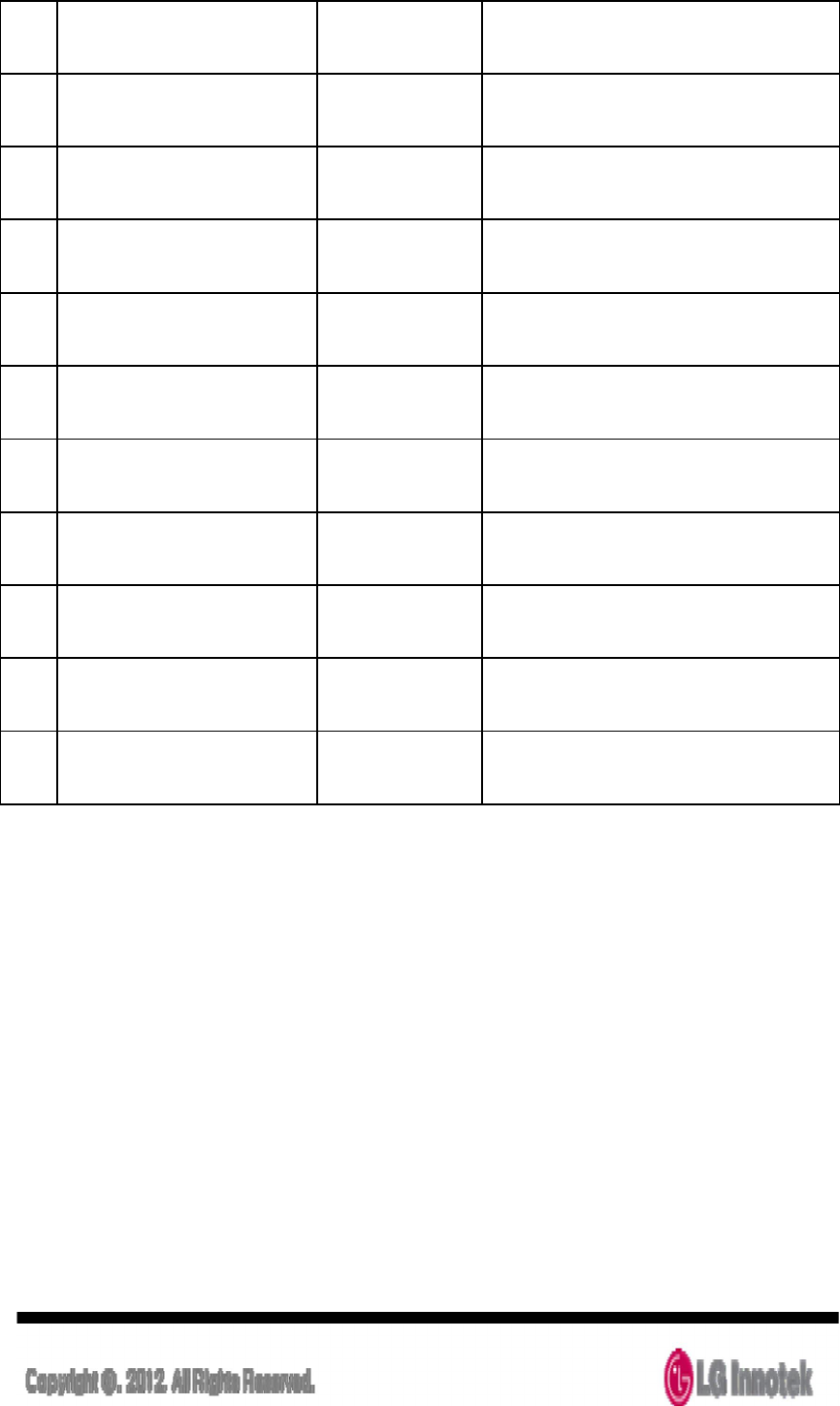
2.1 Automotive Parts
No
Item Manufacturer Operating Temperature/ Note
1 MDM6600 Qualcomm -20~ 85℃
2 PAM AVARGO -30 ~ 85℃
3 Filter EPCOS -20∼+85°C
4 Quadplexer AVARGO -20∼+85°C
5 MEMORY(NAND) NUMONYX Automotive Part
6 MEMORY(SDRAM_DDR) MICRON Automotive Part
7 Capacitor / Inductor Murata Automotive Part
8 Resistor YAGEO Automotive Part
9 TCXO KDS Automotive Part
10
PCB LGIT 6 Layer
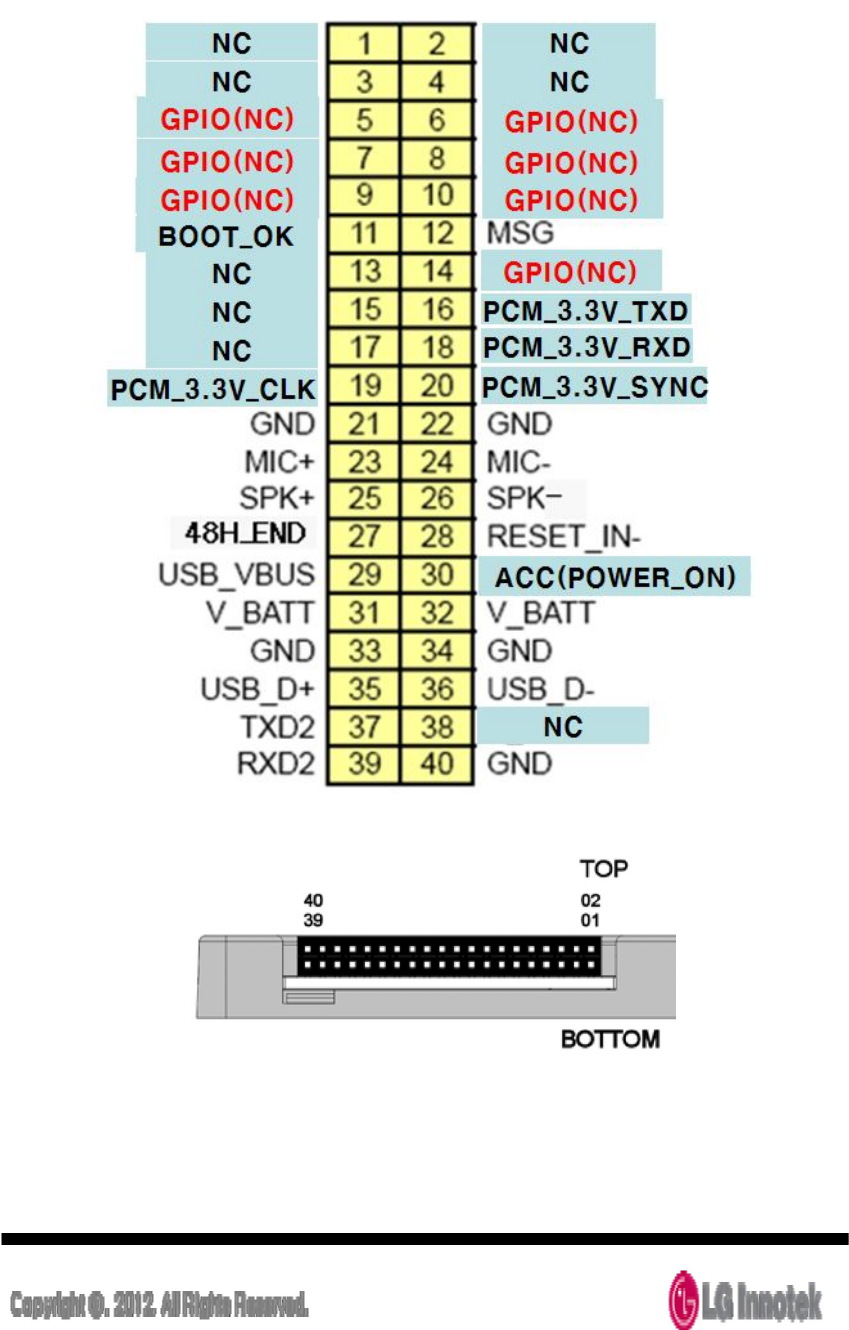
3. Interface
3.1. Pin outs
Customer P/N is connected with outer device using 40 pin connectors
Figure 2 Modem Interface Connector Pin arrangement
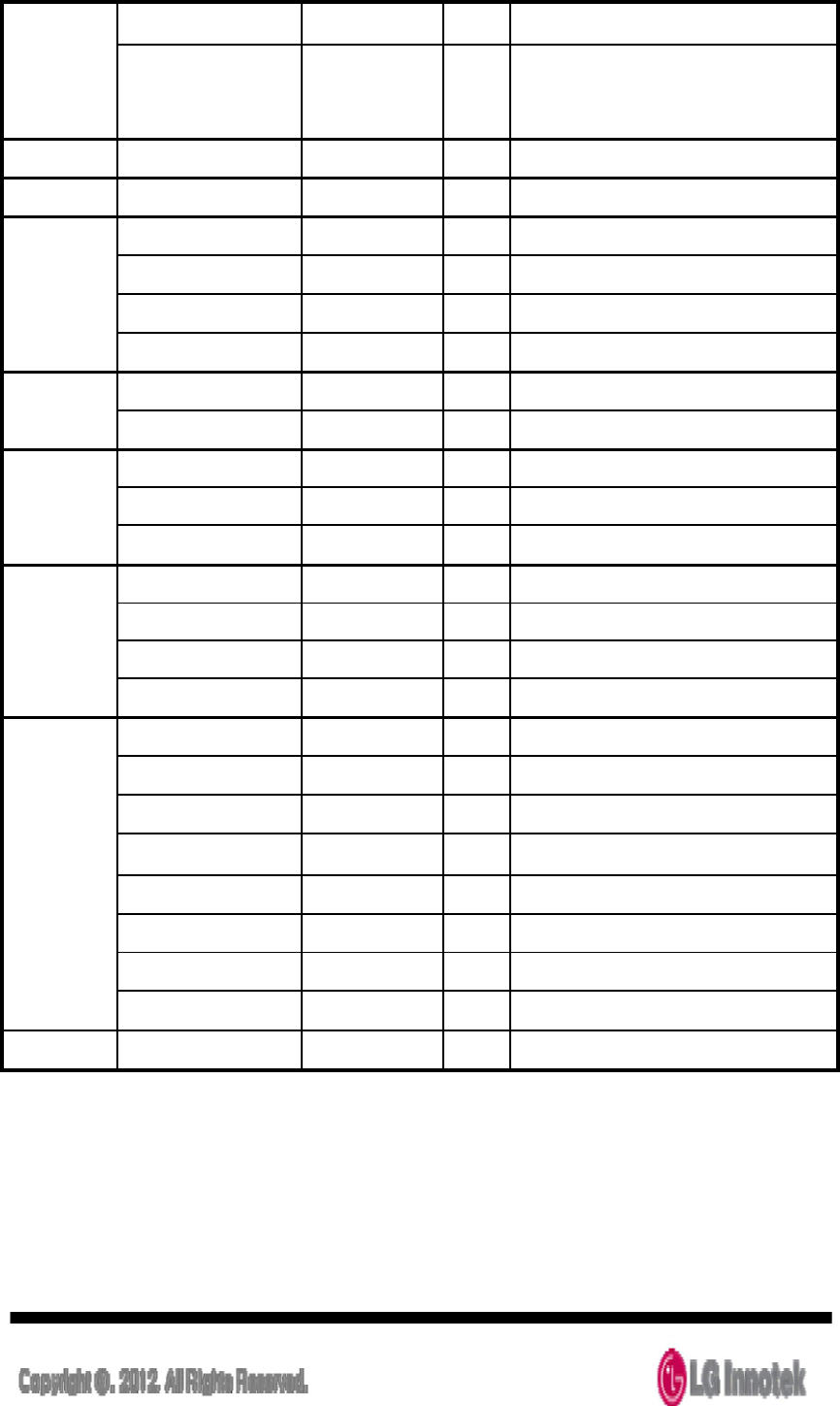
3.2. Pin Descriptions
NC
Pin NO. Signal Name In/Out
기능
1, 2, 3, 4, 13, 15, 17, 38
NC
V_BATT 31, 32 POWER POWER
GND 21, 22, 33, 34, 40 GND GND
PCM
16 PCM_3.3V_TXD O PCM DATA OUT
18 PCM_3.3V_RXD I PCM DATA IN
19 PCM_3.3V_CLK O PCM CLK
20 PCM_3.3V_SYNC O PCM SYNC
UART2
(DM Port)
37 TXD2 I Serial Data Input 2 , HSDPA 디버깅
39 RXD2 O Serial Data Output 2, HSDPA 디버깅
USB
(USB2.0)
29 USB_VBUS I Power supply for the USB transceiver
35 USB_D+ I/O USB differential data (+)
36 USB_D- I/O USB differential data (-)
AUDIO
(MIC/SPK)
23 MIC+ I Differential Microphone input (+)
24 MIC- I Differential Microphone input (-)
25 SPK+ O Analog Audio Differential Output (+)
26 SPK- O Analog Audio Differential Output (-)
User Interface
9 SSl0 I Air-bag Signal input(Not use)
10 SSl1 I CAN Wake Up Signal input (Not use)
11 BOOT_OK O Modem Booting Completion / Modem Wake Up
12 MSG O Received emergency message from Center
14 AUIDIO_ON- O Signified in voice communication(not use)
27 48H_END O Signified in 48 hours standby mode ending
28 RESET_IN- I Modem Hardware reset input
30 ACC(POWER_ON)
I Modem Power ON/ Modem POWER Sleep
GPIO 5, 6, 7, 8, 9, 10, 14 GPIO I/O Possible to connect to GPIO/
Table 1 Pin Descriptions
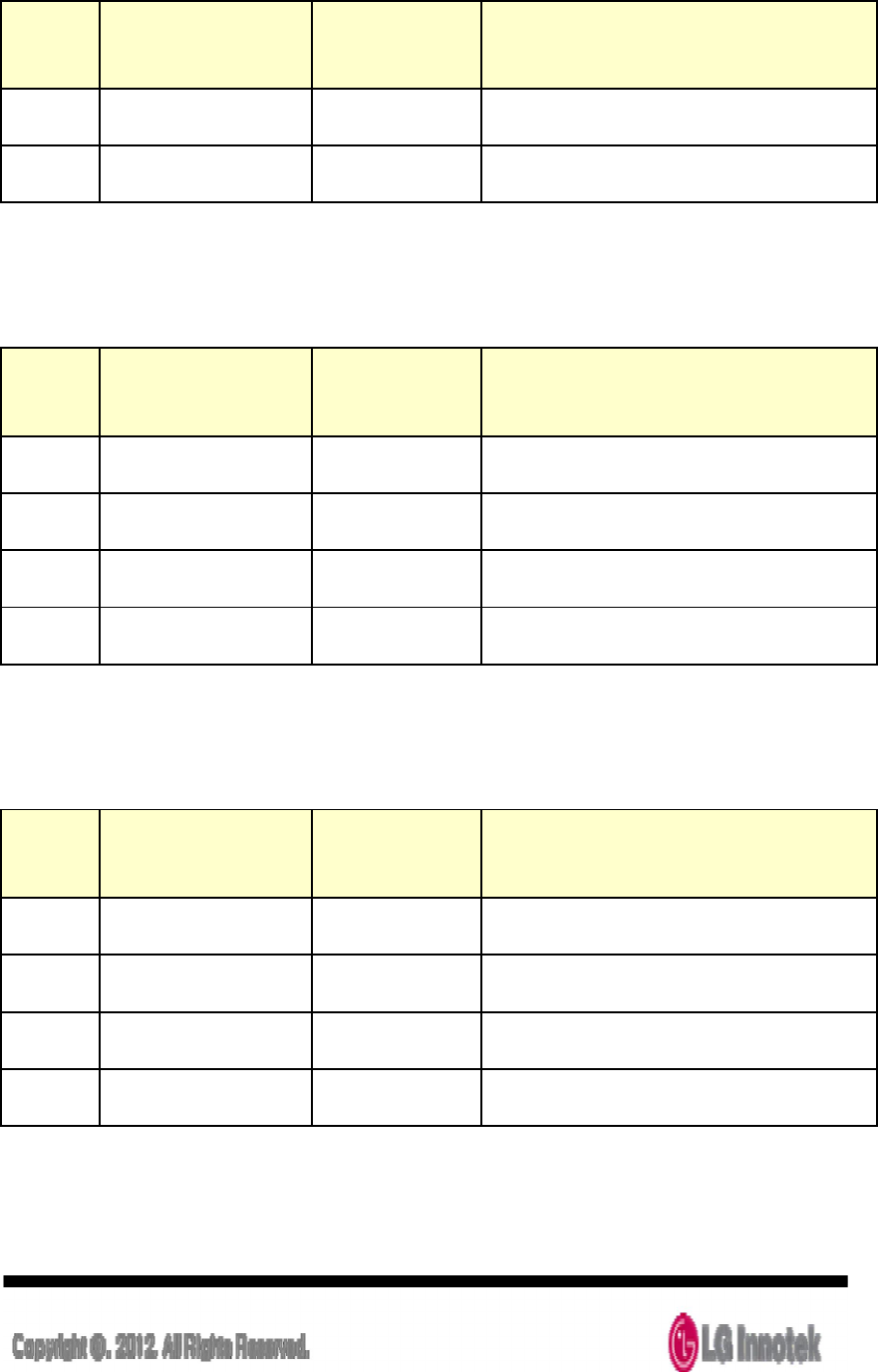
3.3. UART ( RS-232 Interface )
This module is provided with interface supporting Standard RS-232 protocol.
DCE(modem) is exchanged with data or control AT-Command through DTE(host).
Pin
NO. Signal Name Function
(Modem) Pin Function Summary
37
TXD2
I
Serial Data Input 2
39
RXD2
O
Serial Data output 2
3.4. USB
It is supported with universal serial bus for high data communication.
It is satisfied with USB2.0 specification and supported with Max.480Mbps
Pin
NO. Signal Name Function
(Modem) Pin Function Summary
29
USB_VBUS
I
Power supply for the USB transceiver
35
USB_D+
I/O
USB differential data (+)
36
USB_D-
I/O
USB differential data (-)
3.5. AUDIO
Modem is provided with condenser mic input, speaker output for voice call
Speaker output can connect with 32Ω speaker
Pin
NO. Signal Name Function
(Modem) Pin Function Summary
23
MIC+
I
Differential Microphone input (+)
24
MIC-
I
Differential Microphone input (-)
25
SPK+
O
Analog Audio Differential Output(+)
26
SPK-
O
Analog Audio Differential Output (-)
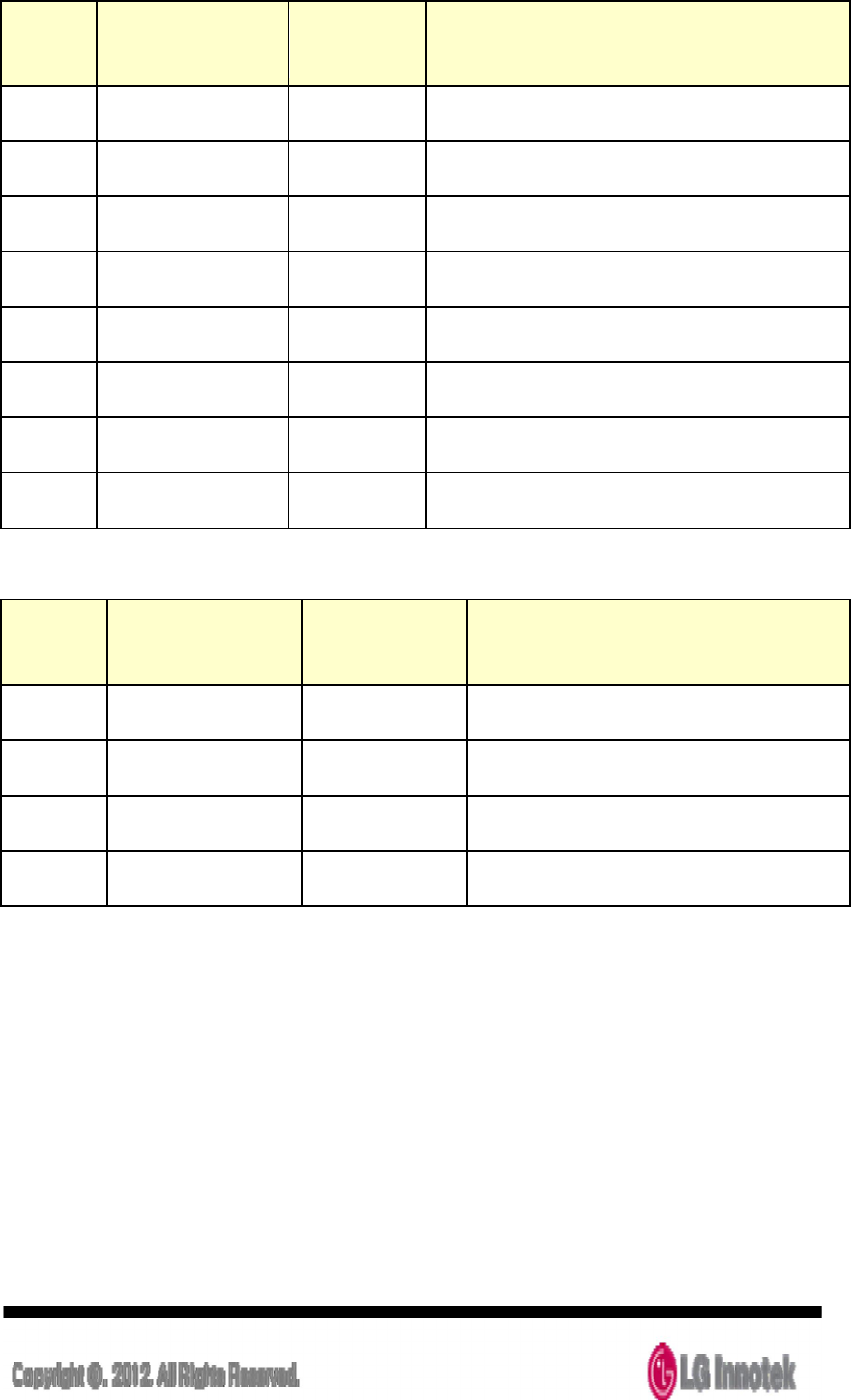
3.6. User Interface Signals
Pin
NO. Signal Name Function
(Modem) Pin Function Summary
9 GPIO NC
10 GPIO NC
11 BOOT_OK O Modem booting end / Modem Wake Up
12 MSG O Received emergency message from center
14 GPIO NC
27 48H_END O Signified in 48 hours standby mode ending
28 RESET_IN- I Modem Hardware reset input
30 ACC(POWER_ON)
I Modem Power ON/Modem POWER Sleep
3.7. PCM Signals
Pin NO.
Signal Name Function
(Modem) Pin Function Summary
16
PCM_3.3V_TXD O
PCM DATA OUT
18
PCM_3.3V_RXD
I
PCM DATA IN
19
PCM_3.3V_CLK
O
PCM CLOCK
20
PCM_3.3V_SYNC
O
PCM SYNC
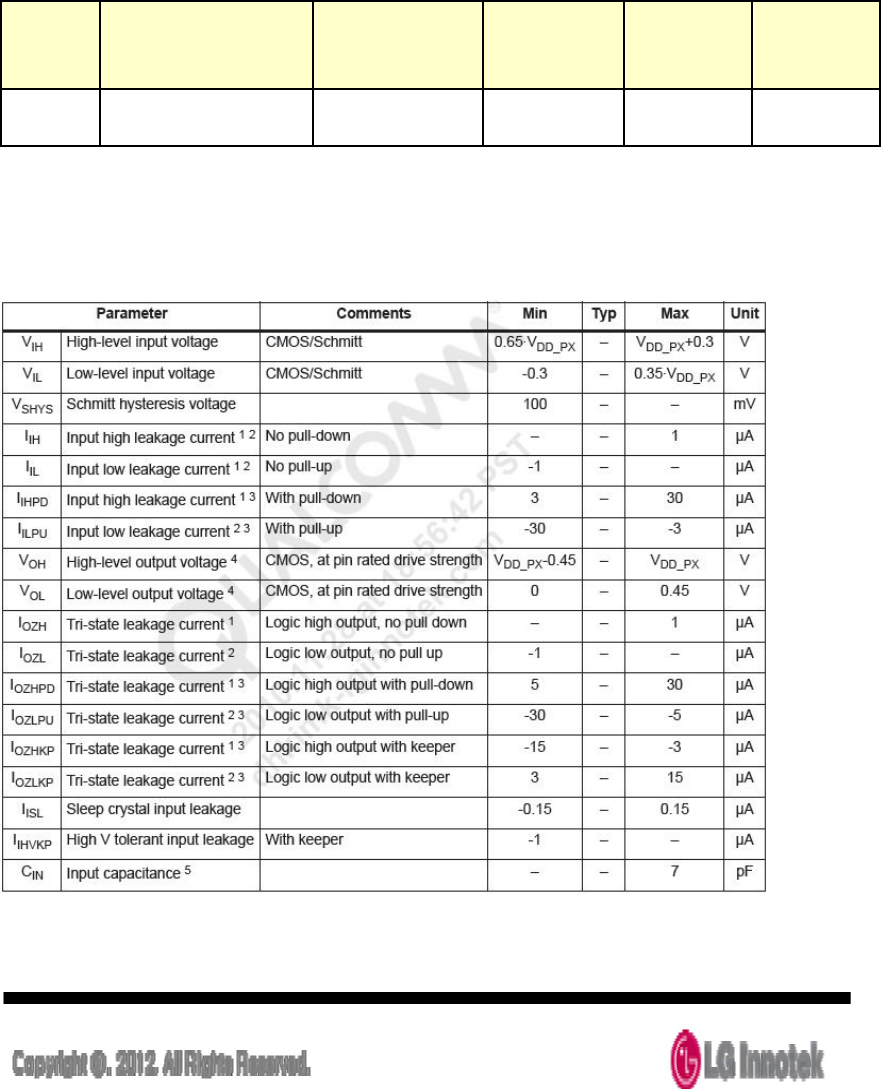
4. Electrical Specifications
4.1. Power Supply Specification
Modem power(V_BATT) should be provided DC3.8V ± 0.1V, 1.5A. Modem power is
provided according to inner function and per block using DC regulated circuit.
It is controlled with each power depending on the mechanism to reduce power
consumption to a minimum. PA is used directly V_BATT because of a lot of power input
power source. Thus, It can be resulted in breakage of PA in excess of the rated input
power.
In addition, surge and ESD should be designed to block the influx in order to prevent
damage to the modem.
Pin
NO. Signal Name Function
(Modem) MIN TYP MAX
31,32
V_BATT
I
3.7V
3.8V
3.9V
4.2. Logic Level Specifications
4.2.1. Digital logic level specificatioons
Basic interface level : CMOS 1.8V, 2.85V

5. RF Specifications
5.1. Receiver
Bandwidth: 1.25MHz
Frequency: 869MHz – 894MHz(BC0), 1930MHz – 1990MHz(BC1)
RF to Baseband Direct conversion(Zero IF)
Modulation method : QPSK,8PSK and 16QAM
Sensitivity: -104dBm under (BER = 0.5%under)
5.2. Transceiver
Frequency : 824MHz – 849MHz(BC0), 1850MHz – 1910MHz(BC1)
Maximum RF Output: Power class3(BC0) Power class2(BC1), 23.01dBm ~ 30dBm max.
Modulation method: BPSK, QPSK AND 8PSK
Baseband to RF Direct conversion(Zero IF)
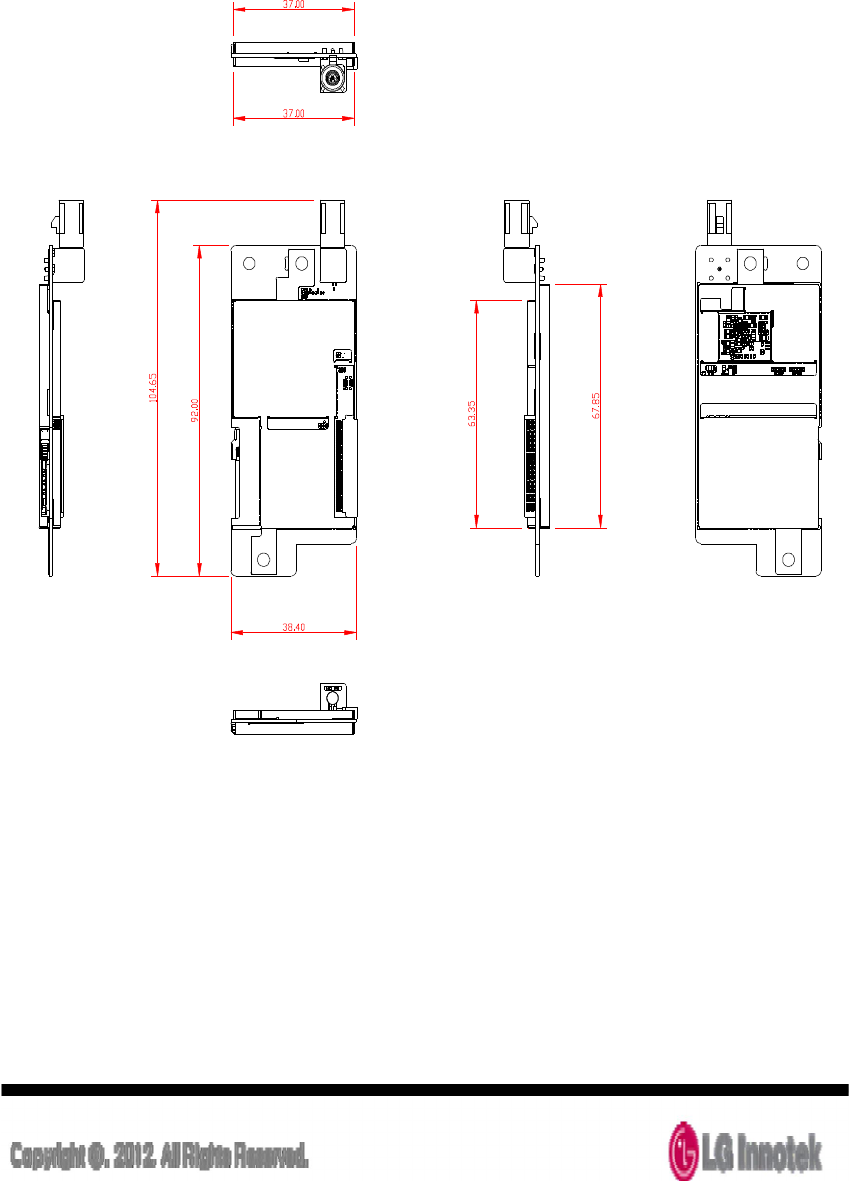
6. Mechanical Specification
6.1. Mechanical Dimensions
Dimensions 92.0 x 38.4 x7.6 mm
Weight 30.7 grams max.
Modem Interface connector KM17E-40DS (manufacturer : HIROSE)
Antenna Connector 59S21B-40MT5-D (manufacturer : Rosenberger)
Figure 3 Mechanical Dimension

6.2. Environmental Specifications
1) Storage Temp : -40℃ ~ +85℃
2) Operating Temp : -20℃ ~ +70℃
(-20℃ ~ +70℃ : 3GPP specifications satisfaction
-30℃~-20℃, +70℃~+80℃ : can be performance degradation
3) Operating humidity : 90% (50℃) relative humidity
4) Operating vibration : 5 Hz ~ 500 Hz Signe wave 1.5G
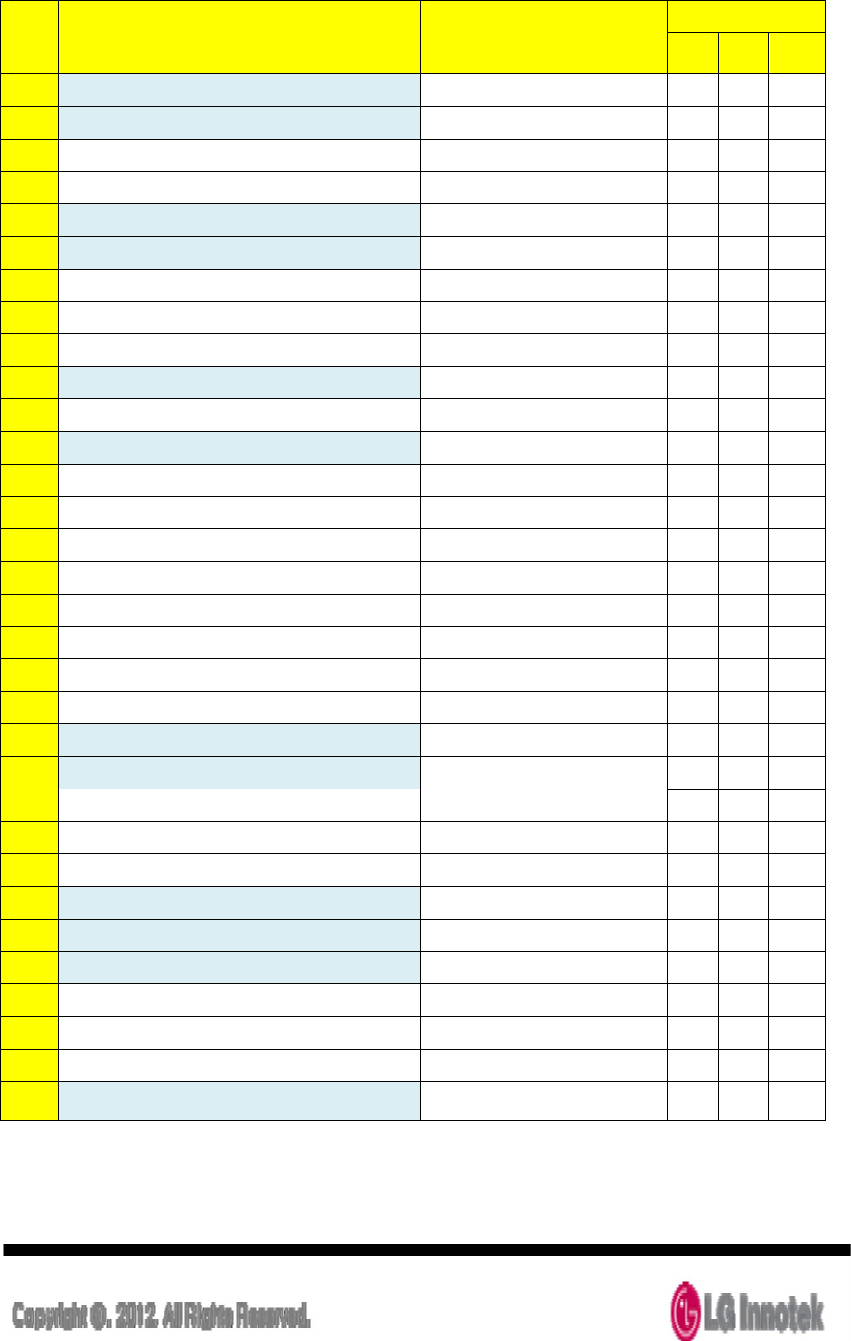
7. General Specification
7.1. CDMA Electrical Specification
CH(850MHz/1900MHz)
시험 항목 Spec. CHANNEL
1017/25
358/563
774/1175
4.4.5 Maximum Output Power 23.01~30dBm
4.5.1 Conducted Spurious Emissions
885 kHz to 1.98 MHz -42 dBc↓/30 kHz
1.98 MHz to 4.00 MHz -54 dBc↓/30 kHz (BC0) -50 dBc↓/30 kHz (BC1)
4.4.6 Minimum Controlled Output Power -50dBm↓
4.3.4 Waveform Quality
Rho 0.94 ~1.00
Freq_E +/-300.00Hz (BC0) +/-150.00Hz(BC1)
Time_E -1.00~1.00 us
4.4.9 Code Channel to Reverse Pilot Channel Output Power Accuracy
Data Rate: 9600 bps 3.5~4 dB
4.4.4 Range of Closed Loop Power Control
up @ Full rate 24↑
down @ Full Rate -24↓
up @ Half rate 24↑
down @ Half Rate -24↓
up @ Quarter rate 24↑
down @ Quarter Rate -24↓
up @ Eighth rate 24↑
down @ Eighth Rate -24↓
4.4.2 Time Response of Open Loop Control PASS
4.4.1 Range of Open Loop Power
Open Loop Power Upper -57.50~-38.50(BC0) -60.50~-41.50(BC1)
Open Loop Power Mid -17.50~1.50(BC0) -20.50~-1.50(BC1)
Open Loop Power Sense 10.50~29.50(BC0) 10.50~29.50(BC1)
4.3.2 Reverse Pilot Channel to Code Channel Time Tolerance ±10 ns.
4.3.3 Reverse Pilot Channel to Code Channel Phase Tolerance 0.05~0.15 deg
4.3.4 HWQ
Rho 0.94~1.00
Freq_E +/-300.00Hz (BC0) +/-150.00Hz(BC1)
Time_E -1.00~1.00 us
3.5.1
Reference Sensitivity Level(-104/-25) 0.5% ↓
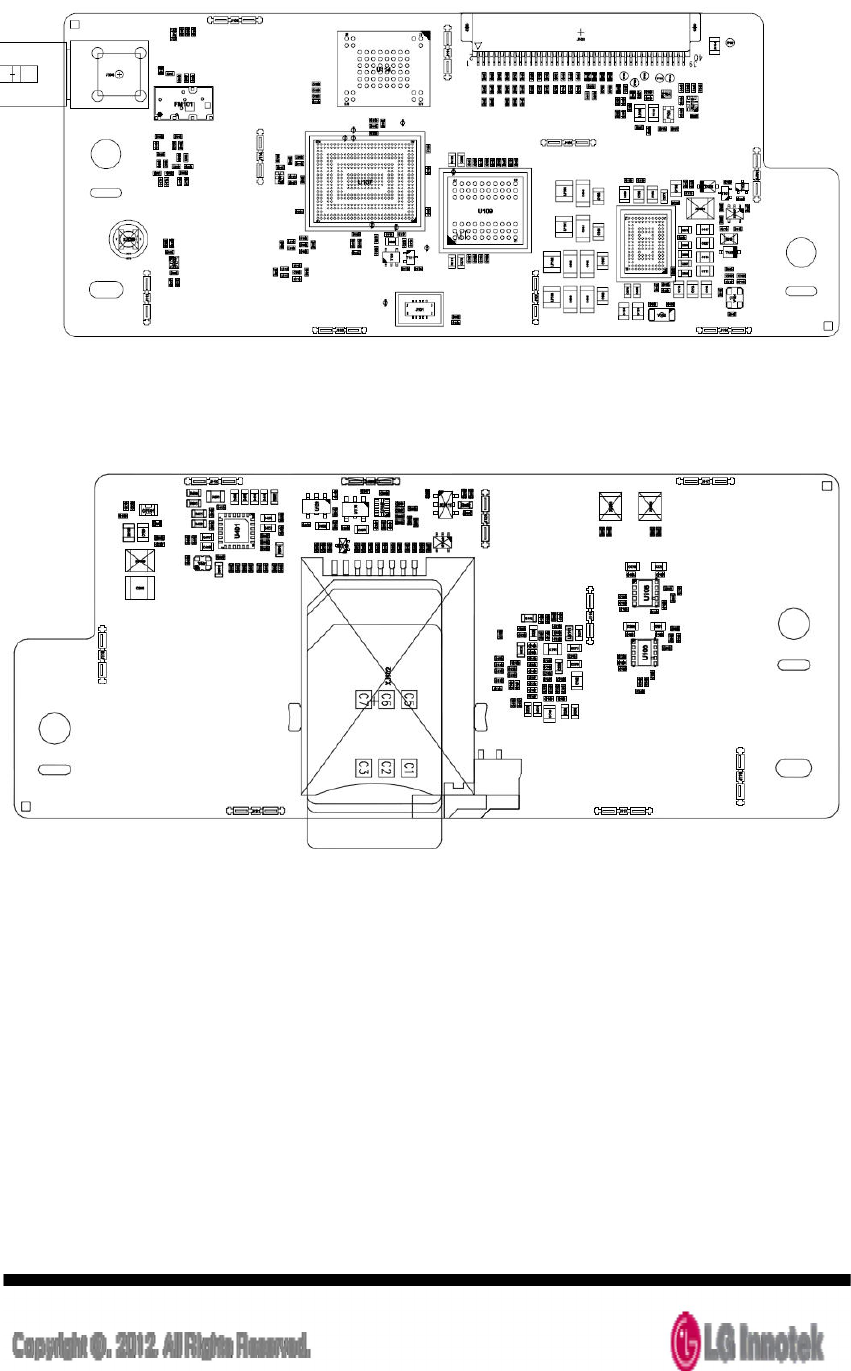
8.Parts Map
Top
Bottom
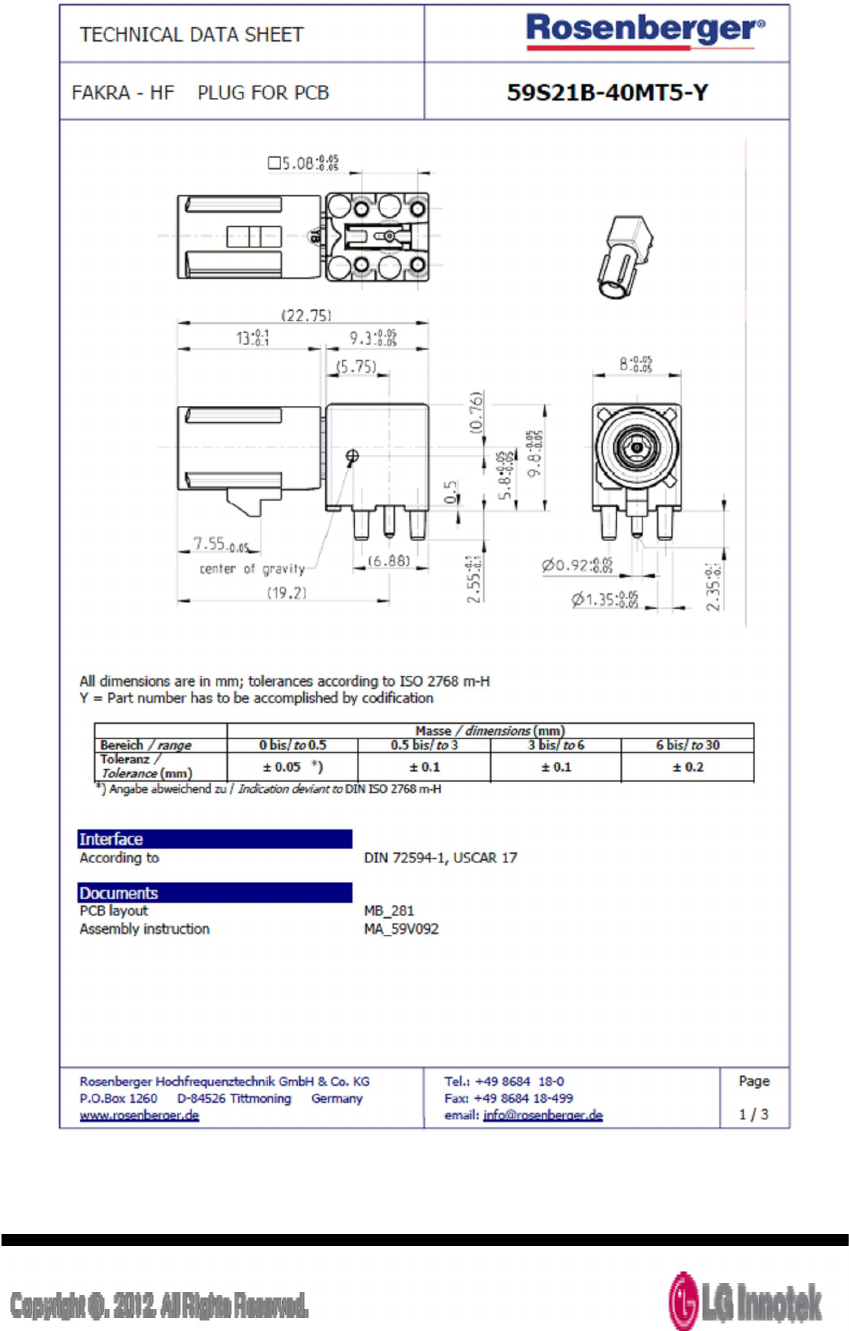
9. Connector
9.1. Antenna Connector : 59S21B-40MT5_D(manufacturer : Rosenberger)
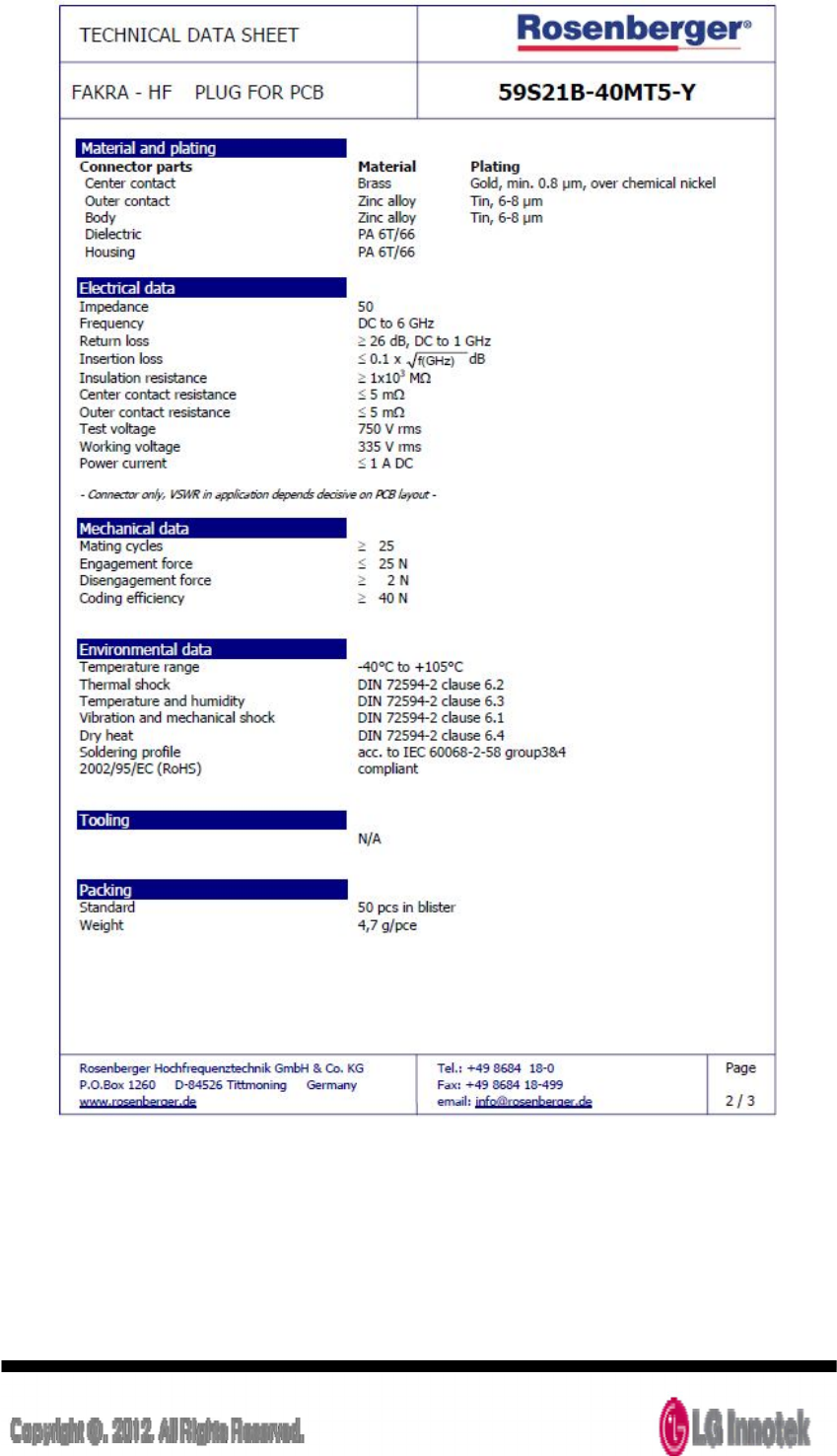
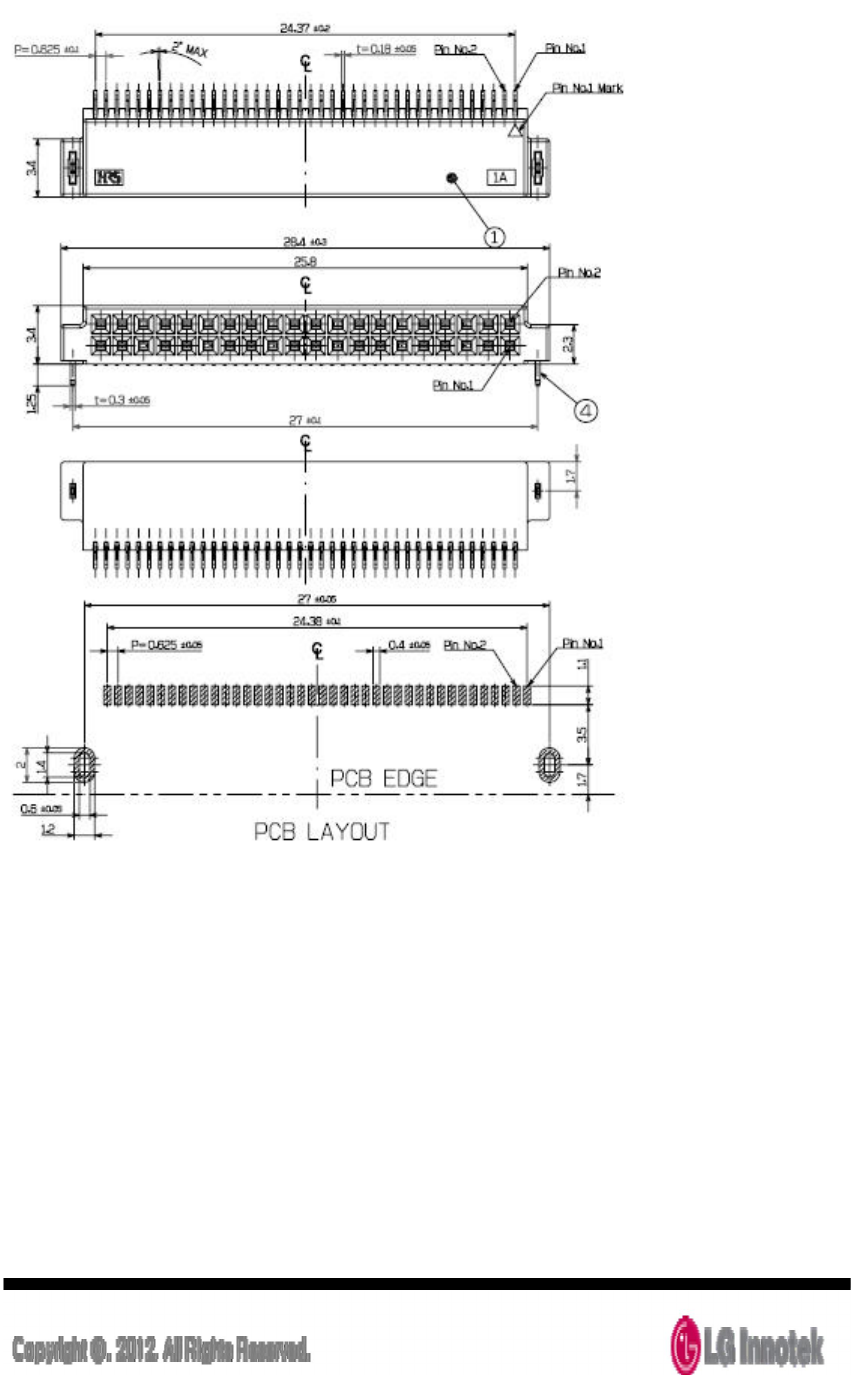
9.2. 40Pin Connector : KM17E-40DS (manufacturer : HIROSE)
Figure 4. 40 Pin connector
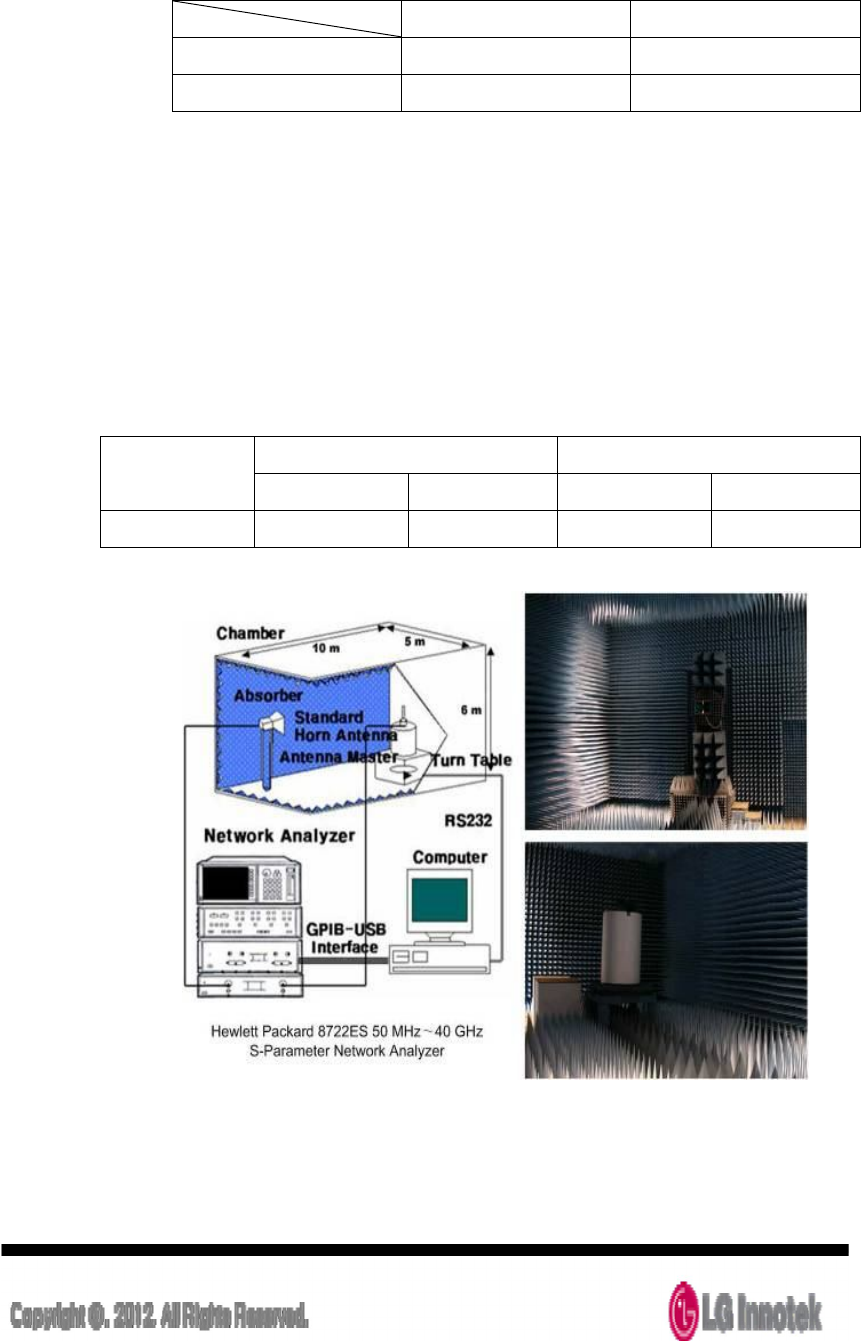
10. Antenna Specification
10.1 Antenna spec.
10.1.1Frequency Band
Frequency Band
CDMA 850 CDMA 1900
TX 824 ~ 849 1850 ~ 1910
RX 869 ~ 894 1930 ~ 1990
10.1.2 Normal value
50Ω ± Normal
10.1.3 Measuring method
The impedance over the frequency bands shall be as close as possible to 50Ω after
matching. Both free space and talk position are considered.
10.2 VSWR
The impedance matching should be optimized in the more critical talk position.
10.2.1 Maximum values in free space
Band CDMA 850 CDMA 1900
TX RX TX RX
VSWR 2.8 2 1.2 1.8
10.2.2 Measuring Method
Figure 5. Chamber
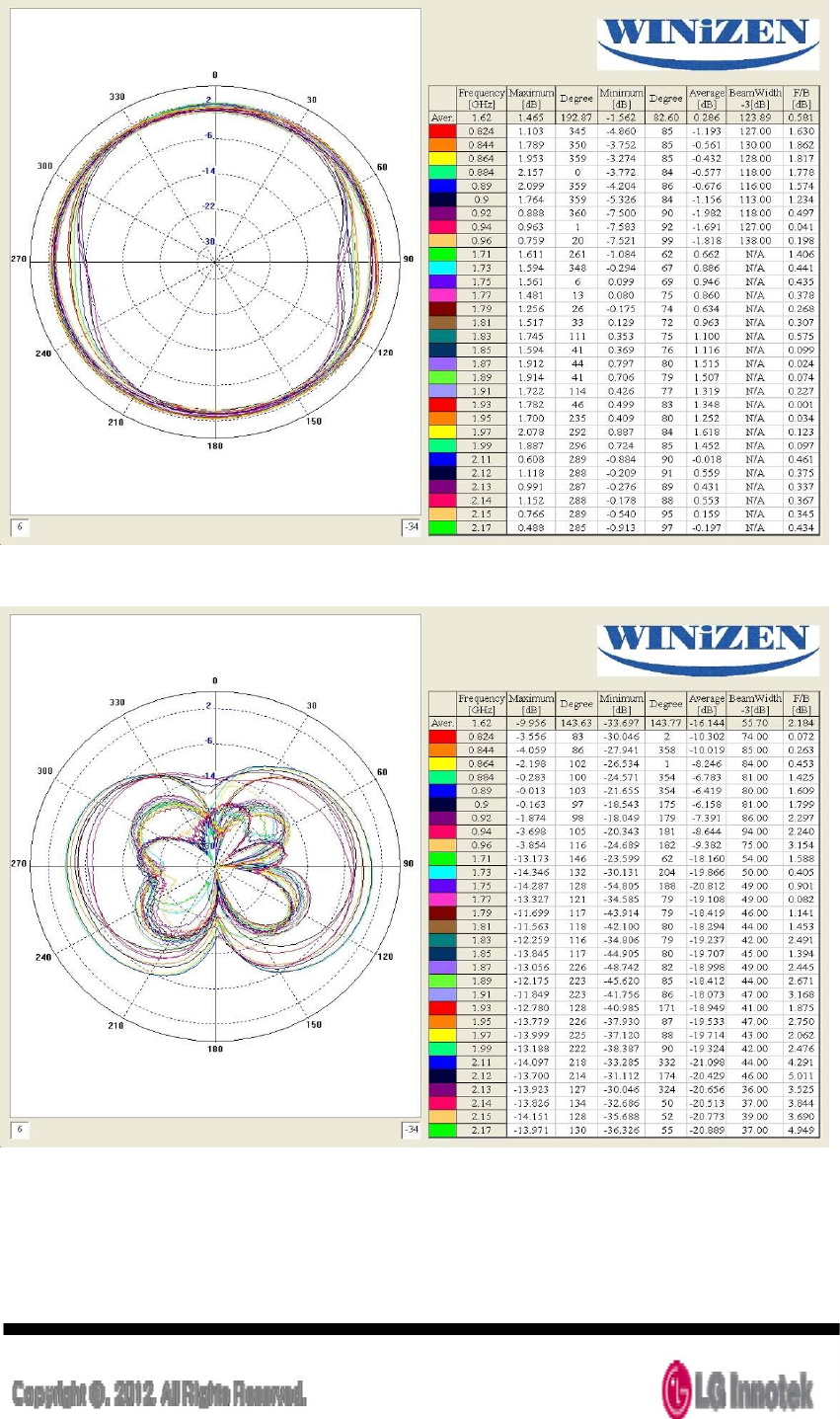
a. Azimuth Pattern ; Co – pol
b. Azimuth Pattern ; Cross – pol
Figure 6. Gain Patterns

11. RFx information
The RF field strength of the wireless module or modules that may be
embedded in your TCU is well all international RF exposure limits as known
at this time. Because the wireless modules(which may be embedded into
your TCU) emit less energy than is allowed in radio frequency safety
standards and recommendations, manufacturer believes these modules
are safe for use. Regardless of the power levels, care should be taken to
minimize human contact during normal operation.
This module should be used more than 20cm(8 inches) from the body
when wireless devices are on and transmitting.
This transmitter must not be collocated or operate in conjunction with
any other antenna or transmitter.
Operation is subject to the following two conditions: (1) this module may
not cause interference , (2) this module must accept any interference that
may cause undesired operation.
11.1 Information for integrator
The integrator has to be aware not to provide information to the end
user regarding how to install or remove this RF module in the user
manual of the end product.
The user manual which is provided by integrators for end users must
include the following information in a prominent location.
To comply with FCC RF exposure compliance requirements,
the antenna(W8E-MWC-20 Tri-band Dipole Antenna)
used for this transmitter must be installed to provide a separation
distance of at least 20cm from all persons and must not be co-
located or operating in conjunction with any other antenna or
transmitter.
Label for end product must include Contains FCC ID : YZP-D660V or
A RF transmitter inside, FCC ID : YZP-D660V